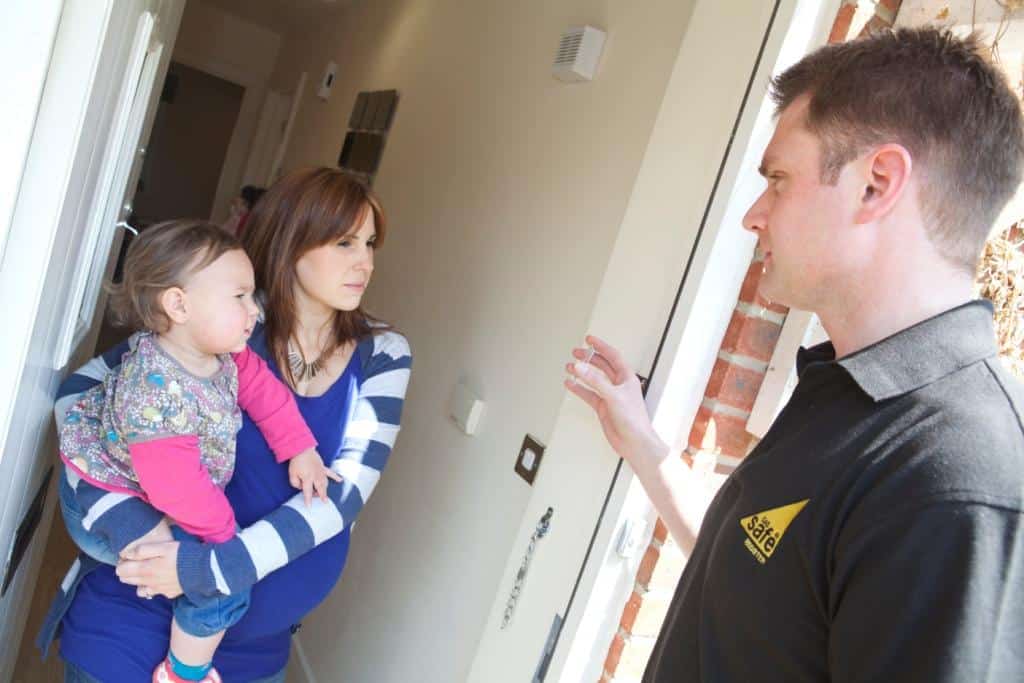According to research from Uswitch, it’s estimated that around 1.7 million people will not want to turn the heating on this winter. Around 50% say this is due to the increased cost of living, while 25% of pensioners blame the loss of winter fuel payments. This is up from the 972,000 who, last year, said they would not be turning their heating on.
Rather interestingly, searches for hot-water bottles on the Argos website have increased by 257% year on year. The demand for heated blankets is up 224% in the same period. This is evidence that people are starting to look at alternatives to keep warm during the coldest months which lie ahead. More concerningly, this is evidence that more people are struggling to keep warm.

Cold Homes = Poor Heath (and more)
Staying warm isn’t just a comforting “nice to have” luxury – it’s vital and life-support for some. Cold homes can exacerbate health conditions, some extremely serious, including heart attacks, strokes, asthma and other respiratory illnesses, not to mention the mental health impact. It’s estimated that some 10,000 people die each year as a result of living in a cold home.
A cold home does not only impact health. It can have significant issues for children. Without a warm home to do homework, they can fall behind at school. A lack of hot water can also mean they avoid personal care, which in some circumstances can lead to bullying and social exclusion issues.
More than 17% of households are planning to set their thermostats below the recommended levels to save money, with nearly 8% planning to heat their home to just 17C, and 11% at 16C or lower the Uswitch survey found.
Five things to do before you turn your heating on:
Although the autumn has been rather mild to date, most people will have already switched their heating on. If you are yet to switch your heating on, here are five things you should do to be more energy efficient.
1. Boiler Service – While this may be an expense you would rather avoid you should really consider an annual boiler service. It will help ensure its efficiency and safety when in use. Having it serviced annually should also keep your warranty valid if you’ve had a new one installed in recent years. Worcester Bosch boilers, for example, have a 7-year warranty – as long as you have it regularly serviced.
2. Check Water Temperature – Most combi boiler water temperatures come in around 75 to 80c. If you drop it to 60c, you could reduce your bill by around 9%. A potential saving of around £100 + a year. Avoid turning down any lower than 60c, however.
3. Check Thermostat – Make sure your thermostat is in good working order and set to come on and go off at the right time. Having it coming on too early or going off too late will be a waste. Also, try turning the heating off earlier – you don’t need to switch it off when you go to bed; try 1hr before and see how it feels. If it’s not too cool, then try 1.5 hours and work backwards until you reach the perfect time for you. If you live in a well-insulated house, it will potentially keep the warmth in for many hours after the heating has gone off. Delaying the time you turn on your heating in an evening is a little harder as there is always a delay from turning it on and feeling warm. You could certainly start with 15-minute delays and work from there; for example, if you usually turn on at 5pm, try 5:15pm and assess.
4. Check and Bleed Radiators – Bleeding radiators will remove trapped air, which will greatly increase their efficiency. Check for any cold spots in the radiators. If the radiator is cold at the top but warm below you could have trapped air. Also, loud grumblings when the heating is on and radiators taking longer than expected to warm up could also indicate air in the system. Bleeding can be a little messy, but it is a quick and relatively easy job.
5. Other checks – Take some time to check for anything that can water energy in your home, such as gaps in the doors, rooms with no curtains in etc. These can be quick wins. Below are five useful tips to keep warm for less.

Five Useful Tips on Keeping Warm for Less:
1. Thick Curtains – One of the best ways to keep your home warm in the winter is to have thick curtains. Many homes, especially those that don’t have double glazing, will lose a considerable amount of heat through windows. As curtains are designed to cover windows, it makes perfect sense to ensure you have thick curtains for the winter. Some curtains do have thermal linings, so you don’t necessarily need to go ultra-thick to keep warm.
2. Giving Radiators Space – Make sure you keep your radiators away from the furniture. Having your sofa right up against the radiator may look cosy, but it will absorb a great deal of heat. Giving your radiator a little space will allow all the heat to warm the room up. You can also further help a radiator become even more efficient by fitting reflective foil at the back, allowing it to reflect heat away from the wall it sits on back into the room.
3. Small Drafts – There are a number of small drafts around the home, which can all contribute to heat loss. Examples are letterboxes, where brush closers are ideal for stopping junk mail leaflets and also stopping excessive drafts. Keyhole covers are great at stopping drafts through keyholes – especially with older homes, which may have more traditional, larger locks fitted. Small drafts in windows can be tackled by fitting double glazing film, which, although is not as good as the real thing, is a great deal cheaper.
4. Getting Your Timing Right – If you are experiencing very cold weather, consider setting your heating to come on before you arrive home to allow the house to become warm, as opposed to arriving home, feeling cold, and putting the temperature right up (much warmer than you usually have it) to get warm. Having the heating on for longer, with a lower, more stable temperature, will be much more fuel-efficient and more comfortable than shorter hot blasts.
5. Switch Between Hot & Cold – A hot shower may warm you up on a cold morning. However, a cold shower will help improve blood flow between your skin and organs, plus talking cold showers are also correlated with an improved immune system. If taking a cold shower is too much, then switch between hot and cold and see how that helps you. Using less hot water will save you money, too.








